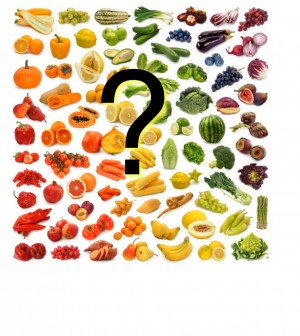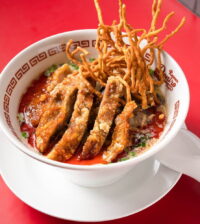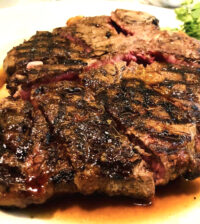- Belgium comes to Yamashita Park
- Residential Villa in Phuket Entices Remote Workers With Long-Stay Rates
- Rare pieces of French glass art at the Mirai Museum of Art
- Feast on fresh fish and seafood at the 2024 ‘Sakana’ Festival
- Would you like to ride in a Louis Vuitton gondola lift?
- Naked Snow Aquarium
- Festive lights at Yomiuriland will get you feeling the holiday vibes
The greener option: Vegetarian dining spots in Tokyo

More and more people are making important lifestyle shifts from being a carnivore to going vegetarian. Vegetarians in Japan do not benefit as much as their European and North American counterparts in terms of food selection, but let it not deter you from going green.
What is a “vegetarian”?
There are three common types of vegetarians, and your dining options in Japan are determined by which category you fit into.
Pescetarians denounce mammal meat, but eat seafood in addition to vegetables. This is practical considering most restaurants and convenience stores carry seafood-exclusive meals. Pescetarians should, however, watch out for meat extracts or flavorings (, , or ) or gelatin () in the mix of foods bought from the store. (Note meat-related kanji as reference.) When dining out, alert waiters or chefs of your food preference before making an order.
Octo-Lacto Vegetarians only eat vegetables, eggs, and dairy products. This is where it gets tricky, as most restaurant and store-bought meals in Japan contain meat and seafood byproducts. As a result, many OLVs like myself opt to cook at home; but although limited, OLVs are not exactly without options. Watch out for foods that contain seafood products like tsuyu , (katsuobushi) bonito flakes, and/or fish extracts.
Vegans are exclusive veggie eaters; they do not eat eggs, dairy products, seafood, and meat. They also abstain from food that contains animal byproducts like honey and most commercial sugar, which is often processed using animal bone-char filters. In conclusion, vegans in Japan are probably superheroes in disguise! When shopping, though, be on the look out for honey (hachimitsu, ) and sugar (satou, ).
Why go vegetarian?
There are numerous reasons people switch to a vegetarian or vegan diet. Many do it for health reasons, as a vegetarian diet is comparatively lower in cholesterol, and as a result reduces the risk of cardiovascular diseases and cancer. A study made by the Loma Linda University in California also found that vegetarians on average live longer than their carnivore counterparts by around seven years, and vegans live a whopping fifteen years longer.
Others do it for the love of animals, and/or to protest and counter animal cruelty. While it is basic knowledge that meat comes from animals, the happenings inside the average farm and slaughterhouse are little-known. The fact that many livestock are caged in tight living quarters without space to move; or that some living chickens’ beaks are cut off to prevent from pecking one another in frustration; or how some animals are slaughtered slowly as the adrenaline rush is thought to make the meat taste “sweeter”, among many other horror stories, are tales that never make it to the public. A vegetarian diet is indeed animal-friendly.
Before going vegetarian, it’s always a good idea to consult with your doctor, health specialist, or nutritionist. While many can instantly switch to vegetarian diets just fine, others may need a professional’s advice to do it healthily.
Where to shop?
Tokyo is already home to some fresh veggies and tofu, so a trip to your nearest supermarket should suffice; but for meat alternatives or instant vegetarian meals, heath foods store Natural House (www.naturalhouse.co.jp), with branches in Omotesando, Meguro, and Shimo-kitazawa, is the place to go. If you don’t mind ordering online or by phone, the Tengu Natural Foods (http://store.alishan.jp) online store offers plenty of organic foods – from frozen food, baby food, and non-dairy milks to herbal supplements and eco-friendly cleaning products. u
Where to eat? TF’s guide to Tokyo’s finest vegetarian dining spots.
Buona! Tubu Tubu
A trendy gourmet diner in Kagurazaka that dishes out delicious organic vegan and vegetarian meals. Stocked with as many as 3,000 traditional grain recipes presented in gourmet fashion, it is a must-visit. Daily specials come with miracle sweets.
1-17-9 Sekiguchi, Bunkyo-ku, Tokyo
Tel: (03) 6457-5045Hours: 11:30am-9pm; closed Tuesdays.
Crayonhouse Hiroba
An Ebisu restaurant that, while it is not strictly vegetarian, has many vegetarian dishes on its menu, many of which are also child-friendly.
3-8-15 Kita-Aoyama, Minato-ku, Tokyo
Tel: (03) 3406-6409Hours: 11am-10pm.
www.crayonhouse.co.jp/home/restaurant.htm
DevaDeva Cafe
An exotic vegetarian café in Kichijoji-Honcho with vegan options and many meatless versions of European and Asian meat dishes and egg-less desserts; vegan cakes are also available for ordering.
2-14-7 Kichijoji-Honcho, Musashino-shi, Tokyo
Tel: 0422-21-6220Hours: 11am-8pm.
www.devadevacafe.com/Enindex.htm
Eat More Greens
A casual New York open café-style restaurant with a patio dining space and a unique menu that changes weekly.
2-2-5 Azabu Juban, Minato-ku, TokyoTel: (03) 3798-3191
Hours: 11am-11pm, weekdays; 9am-11pm, weekends.
www.eatmoregreens.jp/english/index.html
J’s Kitchen
A vegan restaurant with purely organic foods and a wide array of vegan meals and desserts, as well as kids’ menus and takeaway obentos.
Hiroo branch: 5-15-22 Minami-Azabu, Minato-ku, Tokyo
Tel: (03) 5475-2727 Hours: 11am-9pm, Mondays to Saturdays; 11am-5pm, Sundays and holidays.
Tel: (03) 5423-1111Hours: 11am-8pm.














